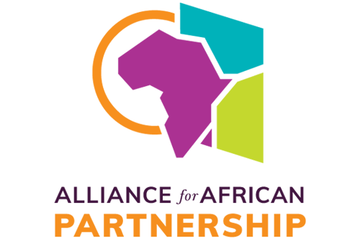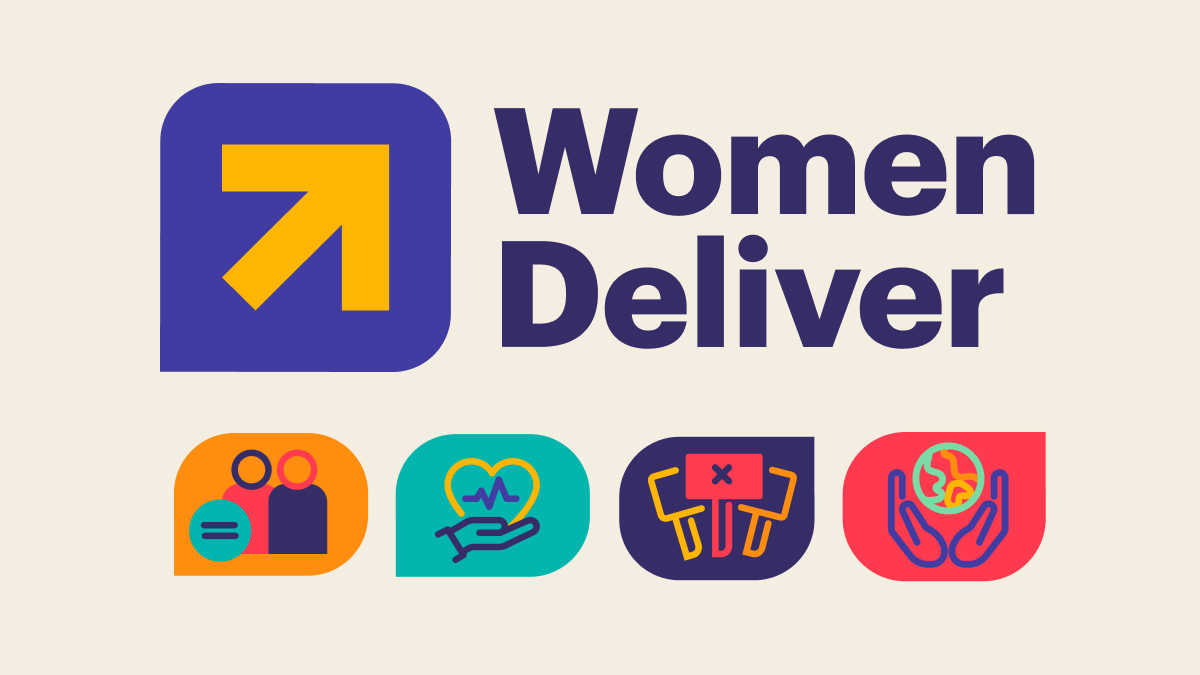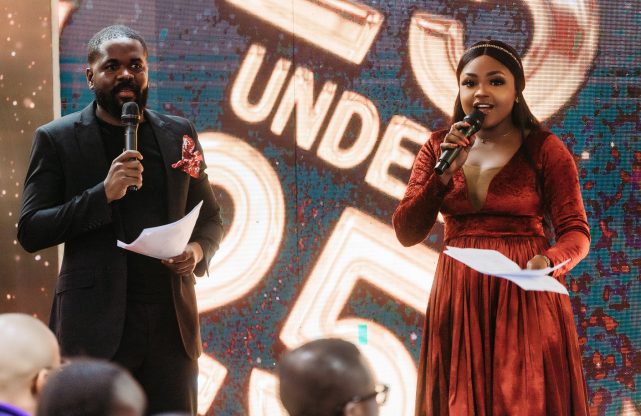Browse
Other
AAP Steps Up Its Global Footprint at Falling Walls 2025
The Alliance for African Partnership (AAP) strengthened its global visibility this year with a significantly expanded presence at the Falling Walls Summit in Berlin, signaling a new phase in Africa’s engagement with one of the world’s leading platforms for science, innovation, and societal impact.
The momentum follows a fast-growing collaboration between AAP and the Falling Walls Foundation, an alliance that has already produced tangible results. LUANAR in Malawi became the first institution in the consortium to launch a combined Falling Walls Engage and Lab, followed by the University of Botswana, which introduced the Gaborone Lab in 2025 and is preparing to roll out the Engage program in 2026. For AAP, these developments are more than individual wins: they mark the beginning of a wider rollout across the consortium, designed to strengthen research communication and create a more connected science engagement ecosystem across Africa.
At this year’s Summit, AAP member universities made their strongest showing yet. Lab winners from LUANAR and the University of Botswana took the stage in Berlin, showcasing African innovation to an international audience of scientists, investors, policymakers, and global media. Senior leaders from across the consortium also attended, led by Michigan State University’s Vice-Provost for International Studies and Programs, Professor Titus Awokuse.
During the delegation meeting with Falling Walls’ Executive Director, Andreas Kosmider, there was clear enthusiasm about the trajectory of the partnership. Discussions focused on deepening African participation in next year’s Summit and widening the circle of collaborators to include government ministries, policymakers, and funding agencies, an effort aimed at opening new channels for African–German cooperation.
For AAP, the stakes are high. Strengthening research communication equips young African scientists to tell their stories compellingly, improving public understanding and increasing the influence of research on policy. The Labs, meanwhile, function as early-stage innovation pipelines, giving African entrepreneurs exposure, mentorship, and a global platform for emerging ideas. The partnership also enhances institutional visibility, positioning African universities as active players in global science diplomacy.
Planning has already begun for next year’s Summit, with AAP leaders working on a coordinated roadmap to ensure a more visible and more diverse African presence in 2026. The goal is not simply to attend, but to shape the agenda by bringing African voices, research, and innovation to the centre of the global conversation.
As AAP expands its Falling Walls footprint, the partnership is beginning to look less like a program and more like an ecosystem-building catalyst. It is strengthening the consortium internally, opening new possibilities externally, and giving African researchers and innovators a much-needed global stage. And if the early signs are anything to go by, the walls separating African science from global visibility are starting to crack, making space for a new era of collaboration and opportunity.
By:
Baboki Gaolaolwe-Major
Thursday, Dec 11, 2025
CULTURE AND SOCIETY
+3

Leave a comment
African Futures Research Leadership Program - Cohort 6 Call for Applicants
AAP AFRICAN FUTURES RESEARCH LEADERSHIP PROGRAM
Artificial Intelligence in Africa: Transdisciplinary Innovations for Sustainable Futures
Cohort 6 Call for Applicants
Alliance for African Partnership (AAP) invites applications for the sixth cohort of the African Futures Research Leadership Program. This competitive visiting scholar program supports early career researchers from AAP consortium universities to collaborate for one year with faculty members at Michigan State University (MSU) and their home institutions. The program focuses on strengthening skills in impactful research, curriculum development, innovative teaching, scholarly and policy writing, dissemination of research results, and grant proposal development. Scholars will also participate in a structured professional development program while building meaningful and lasting connections with MSU faculty and fellow scholars.
The primary goal of the African Futures Program is to strengthen the capacity of emerging African researchers to become scientific leaders in their communities. The program seeks to foster long-term partnerships with MSU faculty, co-create innovative solutions to Africa’s challenges, and cultivate the next generation of research mentors and leaders.
AAP invites applications from early career researchers to join the upcoming cohort, which will begin virtually in February 2026. Scholars will spend September through December 2026 at MSU for the in-person phase of the program, followed by continued virtual collaboration through early 2027. Each scholar will receive a small grant to support research, teaching, and professional development activities, including conference participation and publication. Scholars will also receive a stipend during their time at MSU, visa support, and round-trip travel from their home institution.
Potential Teaching and Research Areas
The 2026 theme, “Artificial Intelligence in Africa: Transdisciplinary Innovations for Sustainable Futures,” highlights the potential of AI to address Africa’s most critical challenges and opportunities. AI research must be ethical, contextualized, and socially responsible, drawing insights from science, engineering, the arts, business, culture, and society. In addition to thematic research, scholars will contribute to the development of curricula for a transdisciplinary doctoral program in AI in Africa and explore innovations in teaching and learning.
We particularly encourage cross-disciplinary projects exploring AI’s transformative potential in:
Agri-food systems – leveraging AI for food security, sustainable agriculture, and resilient supply chains
Health and nutrition – applying AI in disease prevention, diagnostics, personalized medicine, and strengthening health systems
Climate change, water, energy, and environment – using AI for mitigation, adaptation, monitoring, and sustainable resource management
Ethics, governance, and society – integrating human rights, accountability, and inclusivity in AI design and deployment
Culture and the arts – examining how AI interacts with African languages, creative expression, heritage preservation, and digital storytelling
Engineering and science – developing AI-driven technologies suited to African contexts
Education – enhancing equitable access to learning, bridging digital divides, and improving pedagogy through AI
Business and entrepreneurship – fostering inclusive growth, financial technologies, and youth-led AI innovations to shape Africa’s digital future
Through transdisciplinary collaboration, the program aims to promote AI research and teaching that bridges technical and social disciplines, ensuring innovation reflects Africa’s diverse values and aspirations.
Program Benefits
Professional Development – Structured workshops on equitable partnerships, teaching innovation, academic time management, proposal development, budgeting, and research communication to enhance research, teaching, writing, and leadership skills
Leadership Development – A research leadership retreat focused on building leadership competencies, self-reflection, and career development for research advancement
Collaboration Networks – Each scholar will collaborate with MSU and home institution partners. Collaborators may conduct reciprocal one-week visits. Scholars will also join AAP’s network of researchers at MSU, across Africa, and globally to foster lasting institutional partnerships
Expected Outcomes
By the end of the program, each scholar and their team are expected to achieve at least:
Submission or publication of one to three joint manuscripts
Submission of at least one grant proposal
Presentation at one or more academic or professional conferences
Collaborations are designed to extend beyond the program’s duration. Scholars are encouraged to engage broadly with MSU faculty and maintain partnerships after completion. Participants must submit regular progress reports to AAP and their home institution focal point. Failure to meet program or partnership expectations may result in early termination.
Eligibility
Citizenship in an African country
PhD awarded within the last 10 years
Current employment as Academic Staff at one of the AAP African member universities including Egerton University, Makerere University, University of Dar es Salaam, Lilongwe University of Agriculture and Natural Resources, University of Botswana, University of Nigeria, Nsukka, University Cheikh Anta Diop, Yambo Ouologuem University of Bamako, United States International University-Africa, or University of Pretoria
Official approval of leave or sabbatical for the in-person phase
A home institution partner committed to collaborating throughout the program
Research aligned with the program’s thematic areas, focusing on AI in Africa
Submission of only one proposal per applicant in this round of funding
Application Requirements
An updated CV outlining professional accomplishments
A one-page letter of interest detailing alignment with program priorities, research approach, and potential societal impact
Names of up to three potential MSU faculty collaborators (identified from MSU department websites; applicants should not contact faculty directly—AAP will initiate contact)
Two relevant peer-reviewed publications
Two professional references providing context on the relationship and an assessment of the applicant’s expertise
A one-page letter from the home institution collaborator confirming willingness to participate and travel to MSU for collaboration
A one-page endorsement letter from the Head of Department approving leave
A one-page letter of support from the institution’s AAP Focal Point
Selection Criteria:
Professional merit, scientific ability, and potential for career impact (evaluated through CV, publications, letters, and references)
Institutional assurance of continued employment and support post-fellowship
Commitment to return to the home country after the fellowship
Consideration for diversity across disciplines, institutions, and regions. Priority will be given to projects that demonstrate transdisciplinary approaches integrating technology, culture, ethics, and societal impact
EXTENDED DEADLINE: Applications are due by November 28, 2025
Apply: https://msu.co1.qualtrics.com/jfe/form/SV_eVb2iErQhRpmAPs
For questions, please contact José Jackson-Malete at jacks184@msu.edu or +1-517-884-8587.
This project is made possible with the philanthropic support of Carnegie Corporation of New York
By:
Justin Rabineau
Wednesday, Nov 19, 2025
AGRI-FOOD SYSTEMS
+7

Leave a comment
Call for Competition: Young Creatives to Disseminate Research Findings
Call for Competition: Young Creatives to Disseminate Research Findings Are you a young creative (18–35 years old) with a passion for storytelling, innovation, and making a positive impact?The Centre on African Philanthropy and Social Investment (CAPSI) at Wits Business School invites you to take part in a Pan-African Youth Competition on dignified and fulfilling work for young Africans in the nonprofit sector.💡 We’re looking for dynamic teams and youth-owned organizations to design creative outputs that bring research findings from 17 African countries to life.🎨 Formats can include:Short films, animations & documentaries.Infographics, photography & illustrations.Spoken word, music videos & dance.Podcasts, apps, games & web storytelling.Blogs, short stories & narrative journalism.🌍 Competition Regions:North AfricaWest AfricaEast AfricaSouthern Africa🏆 Prizes & Opportunities$32,000 total award per region.Mentorship & visibility through CAPSI platforms.Showcase at policy & donor forums across Africa.📅 Key DatesCall Launch: 19 Sept 2025Submission Deadline: 15 Oct 2025Winners Announced: 31 Oct 2025🔗 Learn more about the research and apply here: https://conta.cc/4mL42ti ✨ Don’t miss this chance to use your creativity to shape Africa’s future!#CAPSI #AfricanYouth #CreativeCompetition #NonprofitSector #JobCreation #YouthVoices
By:
Baboki Gaolaolwe-Major
Friday, Oct 3, 2025
OTHER
No Preview Available
Leave a comment
Application Call: Mo Ibrahim Foundation Leadership Fellowship 2026 for African Professionals
The Mo Ibrahim Foundation Leadership Fellowship Program 2026 is open for applications, providing African professionals with the opportunity to enhance their leadership and governance skills at the African Development Bank in Abidjan, Côte d’Ivoire. Established in 2006, the Mo Ibrahim Foundation focuses on promoting good governance and developing leaders who can influence Africa’s social and economic progress.
How Many Awards?Three (3) Fellows are selected each year
What is the Benefit of the Award?
Annual stipend of $100,000 (paid monthly)
Coverage of official mission travel and insurance
Mentorship from top executives
High-level exposure to governance, policy-making, and development strategy(Note: Fellowship does not provide permanent employment with the host institution)
For more information and application: https://www.afdb.org/en/vacancy/2026-mo-ibrahim-foundation-leadership-fellowship-program-86981
By:
Baboki Gaolaolwe-Major
Thursday, Oct 2, 2025
OTHER
No Preview Available
Leave a comment
Short-Term Grants for Women’s Leadership in Peace Processes
Deadline: Dec 31, 2025
Donor: United Nations Women's Peace & Humanitarian Fund
Grant Type: Grant
Grant Size: $10,000 to $100,000
Countries/Regions: Afghanistan, Albania, Algeria, Angola, Argentina, Armenia, Azerbaijan, Bangladesh, Belarus, Belize, Benin, Bhutan, Bolivia, Bosnia And Herzegovina, Botswana, Brazil, Burkina Faso, Burundi, Cambodia, Cameroon, Cape Verde, Central African Republic, Chad, China, Colombia, Comoros, Congo (Brazzaville), Congo DR, Costa Rica, Cote DIvoire (Ivory Coast), Cuba, Djibouti, Dominica, Dominican Republic, Ecuador, Egypt, El Salvador, Equatorial Guinea, Eritrea, Ethiopia, Fiji, Gabon, Gambia, Georgia, Ghana, Grenada, Guatemala, Guinea, Guinea-Bissau, Guyana, Haiti, Honduras, India, Indonesia, Iran, Iraq, Jamaica, Jordan, Kazakhstan, Kenya, Kiribati, North Korea, Kyrgyzstan, Laos, Lebanon, Lesotho, Liberia, Libya, Macedonia, Madagascar, Malawi, Malaysia, Maldives, Mali, Marshall Islands, Mauritania, Mauritius, Mexico, Micronesia Federated States Of, Moldova Republic Of, Mongolia, Montserrat, Morocco, Mozambique, Burma(Myanmar), Namibia, Nauru, Nepal, Nicaragua, Niger, Nigeria, Niue, Pakistan, Palau, Panama, Papua New Guinea, Paraguay, Peru, Philippines, Rwanda, Saint Helena, Saint Lucia, Saint Vincent And The Grenadines, Samoa, Sao Tome And Principe, Senegal, Sierra Leone, Solomon Islands, Somalia, South Africa, Sri Lanka, Sudan, Suriname, Swaziland, Syria, Tajikistan, Tanzania, Thailand, East Timor (Timor-Leste), Togo, Tokelau, Tonga, Tunisia, Turkey, Turkmenistan, Tuvalu, Uganda, Ukraine, Uzbekistan, Vanuatu, Venezuela, Viet Nam, Wallis And Futuna, Yemen, Zambia, Zimbabwe, Montenegro, Serbia, Kosovo, South Sudan
Area: Humanitarian Relief, Leadership, Peace & Conflict Resolution, Women & Gender
The Women’s Peace and Humanitarian Fund (WPHF) Rapid Response Window (RRW) is accepting concept notes from eligible applicants in countries with active peace processes.
For more information, visit https://wphfund.org/rrw-short-term-grants/
Premium Link: https://grants.fundsforngospremium.com/opportunity/op/shortterm-grants-for-womens-leadership-in-peace-processes
By:
Baboki Gaolaolwe-Major
Thursday, Oct 2, 2025
EDUCATION
+1
No Preview Available
Leave a comment
Rapid Response Funding: Direct Support Stream
Deadline: Dec 31, 2025
Donor: United Nations Women's Peace & Humanitarian Fund
Grant Type: Grant
Grant Size: $10,000 to $100,000
Countries/Regions: Afghanistan, Albania, Algeria, Angola, Argentina, Armenia, Azerbaijan, Bangladesh, Belarus, Belize, Benin, Bhutan, Bolivia, Bosnia And Herzegovina, Botswana, Brazil, Burkina Faso, Burundi, Cambodia, Cameroon, Cape Verde, Central African Republic, Chad, China, Colombia, Comoros, Congo (Brazzaville), Congo DR, Costa Rica, Cote DIvoire (Ivory Coast), Cuba, Djibouti, Dominica, Dominican Republic, Ecuador, Egypt, El Salvador, Equatorial Guinea, Eritrea, Ethiopia, Fiji, Gabon, Gambia, Georgia, Ghana, Grenada, Guatemala, Guinea, Guinea-Bissau, Guyana, Haiti, Honduras, India, Indonesia, Iran, Iraq, Jamaica, Jordan, Kazakhstan, Kenya, Kiribati, North Korea, Kyrgyzstan, Laos, Lebanon, Lesotho, Liberia, Libya, Macedonia, Madagascar, Malawi, Malaysia, Maldives, Mali, Marshall Islands, Mauritania, Mauritius, Mexico, Micronesia Federated States Of, Moldova Republic Of, Mongolia, Montserrat, Morocco, Mozambique, Burma(Myanmar), Namibia, Nauru, Nepal, Nicaragua, Niger, Nigeria, Niue, Pakistan, Palau, Panama, Papua New Guinea, Paraguay, Peru, Philippines, Rwanda, Saint Helena, Saint Lucia, Saint Vincent And The Grenadines, Samoa, Sao Tome And Principe, Senegal, Sierra Leone, Solomon Islands, Somalia, South Africa, Sri Lanka, Suriname, Swaziland, Syria, Tajikistan, Tanzania, Thailand, East Timor (Timor-Leste), Togo, Tokelau, Tonga, Tunisia, Turkey, Turkmenistan, Tuvalu, Uganda, Ukraine, Uzbekistan, Vanuatu, Venezuela, Viet Nam, Wallis And Futuna, Yemen, Zambia, Zimbabwe, Montenegro, Serbia, Kosovo, South Sudan
Area: Humanitarian Relief, Peace & Conflict Resolution, Women & Gender
The Women’s Peace and Humanitarian Fund (WPHF) Direct Support Stream is accepting concept notes from eligible applicants in countries with active peace processes.
For more information, visit https://wphfund.org/rrw-direct-support/
Premium Link: https://grants.fundsforngospremium.com/opportunity/op/rapid-response-funding-direct-support-stream
By:
Baboki Gaolaolwe-Major
Thursday, Oct 2, 2025
YOUTH EMPOWERMENT
+2
No Preview Available
Leave a comment
Open Call: WD2026 Media Scholarship Program
Deadline: Oct 15, 2025
Donor: Women Deliver
Grant Type: Scholarship
Grant Size: Not Available
Countries/Regions: All Countries
Area: Disability, Climate Change, Health, Human Rights, Indigenous Communities, , Individuals, Journalists, Leaders, LGBTQ, Journalism, Media, Refugee & Asylum Seekers, Gender Equality
The Women Deliver is offering Media Scholarships for journalists and content creators worldwide, especially those who may not otherwise be able to attend and report.
For more information, visit https://womendeliver.org/wd2026/participate-in-wd2026/media-scholarships/
Premium Link: https://grants.fundsforngospremium.com/opportunity/op/open-call-wd2026-media-scholarship-program
By:
Baboki Gaolaolwe-Major
Thursday, Oct 2, 2025
CULTURE AND SOCIETY
+2

No Preview Available
Leave a comment
Nigeria 25under25 Youth Entrepreneurship and Leadership Awards
Deadline: Oct 15, 2025
Donor: 25under25 Awards
Grant Type: Awards, Prizes and Challenges
Grant Size: Not Available
Countries/Regions: Nigeria
Area: Business & Industry, Entrepreneurship, Entrepreneurs, Leadership, Sustainable Development
Entries are now open for the Nigeria 25under25 Youth Entrepreneurship and Leadership Awards to provide financial support, a year-long incubation program, personalized leadership coaching, and connections to a network of advisors, mentors, and potential investors.
For more information, visit https://25under25.org/about-25under25-awards/
Premium Link: https://grants.fundsforngospremium.com/opportunity/op/nigeria-25under25-youth-entrepreneurship-and-leadership-awards
By:
Baboki Gaolaolwe-Major
Thursday, Oct 2, 2025
OTHER

No Preview Available
Leave a comment
Call for Proposals: AFR100 Land Accelerator Africa Project
Donor: African Union Development Agency
Grant Type: Training
Grant Size: $1000 to $10,000
Countries/Regions: Algeria, Angola, Benin, Botswana, Burkina Faso, Burundi, Cameroon, Cape Verde, Central African Republic, Chad, Comoros, Congo (Brazzaville), Congo DR, Cote DIvoire (Ivory Coast), Djibouti, Egypt, Equatorial Guinea, Eritrea, Ethiopia, Gabon, Gambia, Ghana, Guinea, Guinea-Bissau, Kenya, Lesotho, Liberia, Libya, Madagascar, Malawi, Mali, Mauritania, Mauritius, Mayotte, Morocco, Mozambique, Namibia, Niger, Nigeria, Reunion, Rwanda, Saint Helena, Sao Tome And Principe, Senegal, Seychelles, Sierra Leone, Somalia, South Africa, Sudan, Swaziland, Tanzania, Togo, Tunisia, Uganda, Western Sahara, Zambia, Zimbabwe, South Sudan
Area: Businesses, Companies and Enterprises, Entrepreneurship, Land Conservation, Sustainable Development
African Union Development Agency (AUDA-NEPAD) has launched a transformative accelerator program aimed at empowering entrepreneurs to restore degraded forests and farmlands across Africa, advancing sustainable development and environmental restoration.
For more information, visit https://www.nepad.org/tenders/advertisement-call-proposal-afr100-land-accelerator-africa-project
Premium Link: https://grants.fundsforngospremium.com/opportunity/op/call-for-proposals-afr100-land-accelerator-africa-project
By:
Baboki Gaolaolwe-Major
Thursday, Oct 2, 2025
OTHER
No Preview Available
Leave a comment
CFAs: Princess Sabeeka Bint Ibrahim Al Khalifa Global Award for Women's Empowerment
Deadline: Mar 20, 2026
Donor: UN Women
Grant Type: Awards, Prizes and Challenges
Grant Size: $10,000 to $100,000
Countries/Regions: All Countries
Area: Individuals, Innovation, Leadership, Gender Equality, Women & Gender
The UN Women has launched a prestigious global award to recognize and celebrate the outstanding efforts of individuals, civil society, public institutions, and private sector actors working toward gender equality and the empowerment of women and girls.
For more information, visit https://www.womenglobalaward.org/en
Premium Link: https://grants.fundsforngospremium.com/opportunity/op/cfas-princess-sabeeka-bint-ibrahim-al-khalifa-global-award-for-womens-empowerment
By:
Baboki Gaolaolwe-Major
Thursday, Oct 2, 2025
YOUTH EMPOWERMENT
+1
No Preview Available
Leave a comment
AAP Connect September 2025 - Editors Note
Dear AAP Members, Stakeholders, Partners and the Public,
Science, technology, and innovation (STI) are crucial to addressing the complex global challenges facing Africa today, including food insecurity, public health crises, climate change, and promoting sustainable economic growth. Harnessing the power of research, new technologies, and innovative solutions is key to building resilient societies, accelerating development, and positioning Africa as a global leader in knowledge-driven transformation.
Alliance for African Partnership (AAP) has identified Science, Technology, and Innovation as one of its key priority areas. This reflects AAP’s commitment to fostering collaborative, cross-disciplinary approaches that empower African researchers, innovators, and institutions to create homegrown solutions. By prioritizing STI, AAP underscores the importance of leveraging African expertise and partnerships to address pressing challenges and to seize new opportunities for inclusive development.
This focus also aligns with the African Union’s Agenda 2063: The Africa We Want, and the Science, Technology and Innovation Strategy for Africa (STISA-2034), which places STI at the heart of Africa’s long-term development blueprint. These policy initiatives emphasize that Africa’s transformation depends on strengthening research and innovation capacity, promoting industrialization, and driving digital and technological advancement. By investing in STI, Africa can ensure it not only responds effectively to emerging crises but also proactively shapes a sustainable, prosperous, and equitable future.
In this way, STI as a priority area of AAP is not only about advancing knowledge—it is about enabling Africa to achieve its aspirations, contribute solutions to global challenges, and unlock the full potential of its people for generations to come. This issue of AAP Connect is dedicated to this priority area and will spotlight researchers, programs, and projects that are advancing STI across the continent.
By:
Jose Jackson-Malete
Tuesday, Sep 23, 2025
OTHER
Leave a comment
CFP: Translation Networks in the Decolonising World, 1950s–1970s
Translation Networks in the Decolonising World, 1950s–1970sKing's College, University of Cambridge | 24–25 April 2026
The 1950s to the 1970s was a transformative period marked by anticolonial struggles, national independences, and non-aligned solidarities across Africa, Asia, and Latin America. These groundbreaking political shifts went hand-in-hand with profound cultural and ideological exchanges across continents. Central to these exchanges were translation networks—dynamic, often informal systems through which ideas filtered across linguistic and national boundaries. These networks not only facilitated the dissemination of anticolonial and more broadly revolutionary thought, but also helped forge new identities and solidarities in a bipolarised world. From clandestine literature, revolutionary manifestos, political speeches, to broadcasting and print journalism, translation operated as an essential tool for decolonisation. Yet, despite their significance, these translation networks remain underexplored. This conference seeks to shed light on the multifaceted role of translation in the decolonising world between the 1950s and 1970s. It seeks to examine how translation—whether cultural or linguistic, diplomatic or political—served as a bridge for ideas, theories, and strategies that fueled anticolonial struggles, fostered regional solidarities, and contributed to the dissemination of counterhegemonic discourses. This conference seeks to redress narratives that often overlook translation’s role in shaping political and cultural transformation by foregrounding the networks of translation that enabled dialogue between communities, intellectuals, and revolutionary movements. It aims to explore how translation practices facilitated the circulation of anti-colonial ideas, shaped notions of identity and sovereignty, and influenced the formation of new political and cultural realities in the decolonising world.
We invite proposals for papers of relevance to the subject of the conference, which might include considerations of:
The role of translation in the dissemination of anticolonial thought;
The translation of revolutionary texts (e.g., manifestos, poetry, political speeches, print journalism) as well as oral traditions and indigenous knowledge that supported anticolonial narratives;
The role of translation as a tool for transnational and transcontinental solidarity;
The role of transnational and transcontinental alliances (e.g., the Non-Aligned Movement) in facilitating ideological exchanges and collaborations;
The role of translation in national, transnational, and transcontinental conferences, festivals, and organisations;
The translation and/or adaptation, reinterpretation, and dissemination of Afro-Asianism, Marxism, nationalism, Pan-Africanism, and/or Pan-Arabism;
The influence of radio, print, and emerging broadcasting or recording technologies in spreading anticolonial ideas in translation;
The role and agency of individual translators in establishing transnational and transcontinental connections;
Comparative perspectives on the intersection of translation and decolonisation in Africa, Asia, and Latin America.
The conference will be in-person at King’s College, University of Cambridge.
To submit a proposal, please include in one document the following information: proposals for 20-minute papers (300 words), paper title, and participant(s) biography (100 words).
Please submit proposals by e-mail to Georgia Nasseh (gsn25 [at] cam.ac.uk).
The deadline for submissions is 15 October 2025.
Contact Information
Dr Georgia NassehResearch Fellow in the Literatures of the Global SouthKing's College, University of Cambridge
Contact Email
gsn25@cam.ac.ukRead more: https://networks.h-net.org/group/announcements/20122618/cfp-translation-networks-decolonising-world-1950s-1970s
By:
Baboki Gaolaolwe-Major
Monday, Aug 18, 2025
OTHER
No Preview Available


Leave a comment